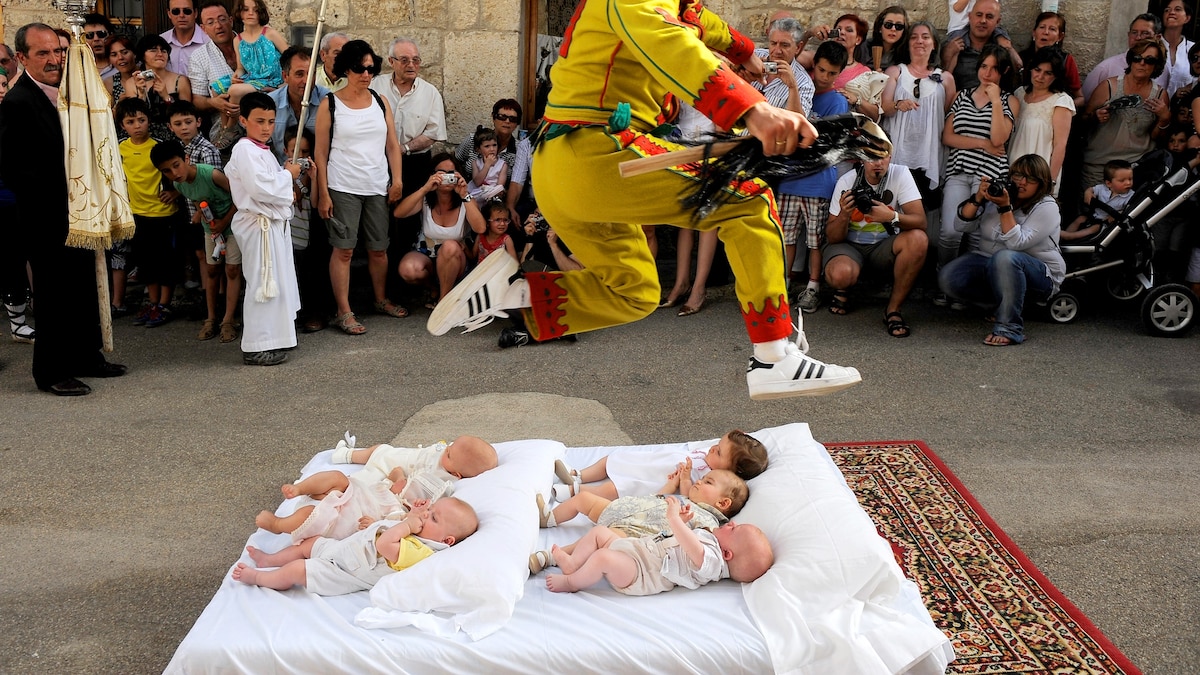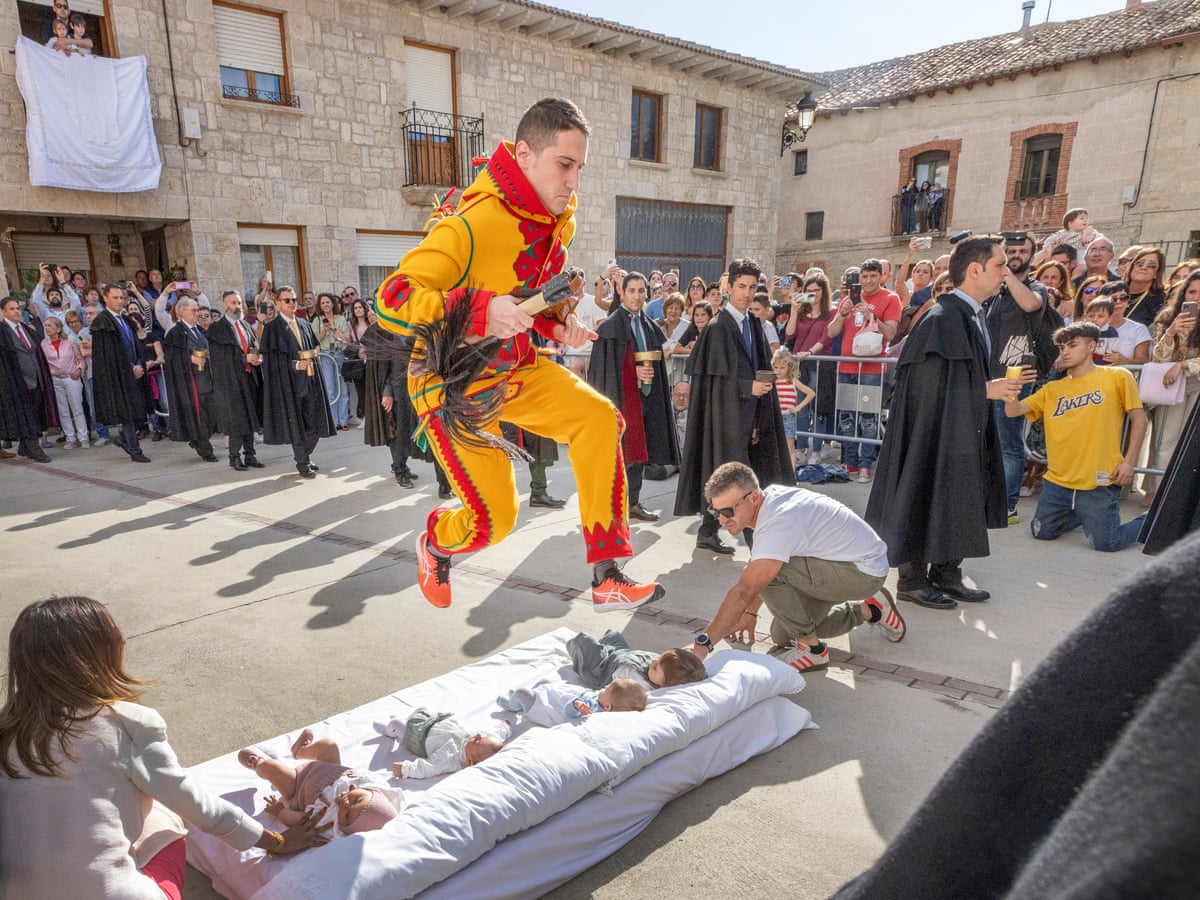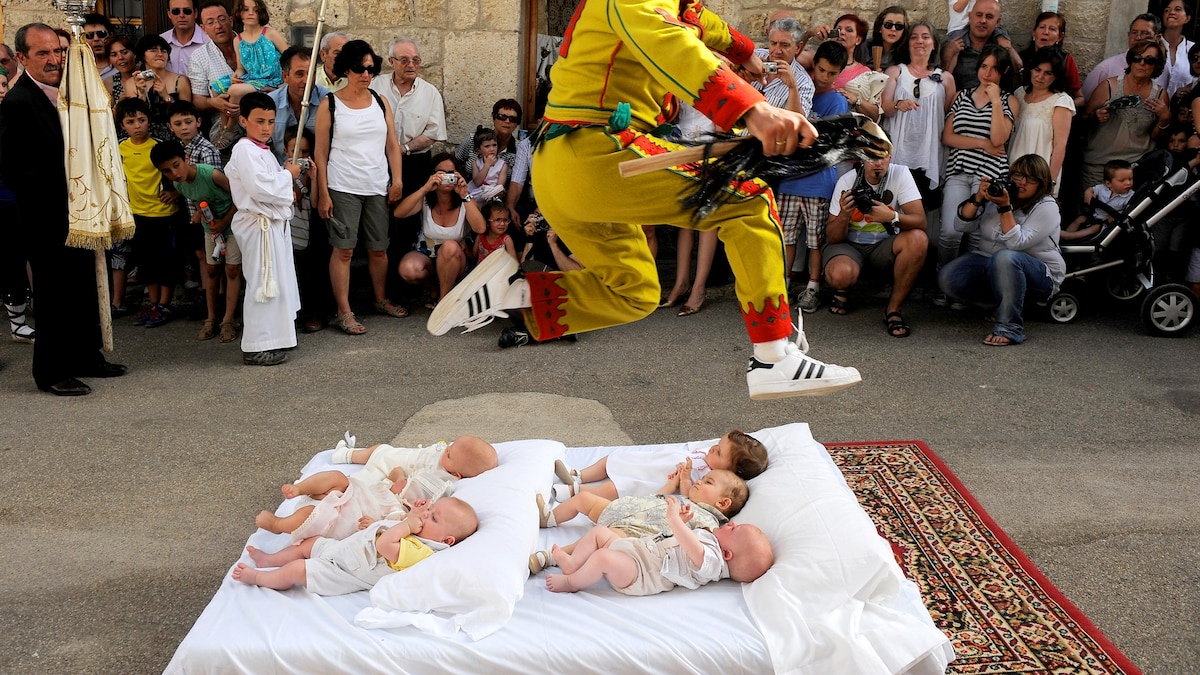In the quaint Spanish village of Castrillo de Murcia, an extraordinary spectacle unfolds each year that leaves outsiders both fascinated and bewildered. Men dressed as devils, adorned in vibrant yellow suits, leap over rows of babies lying on mattresses in the street. This centuries-old tradition, known as El Colacho, dates back to 1620 and continues to captivate audiences worldwide with its unusual approach to blessing newborns.

El Colacho Baby Jumping Festival – Image Credit: National Geographic
The ritual begins with the thunderous beating of drums as the colorfully dressed devils parade through narrow village streets. These devils jumpers, selected by the local brotherhood, undergo rigorous training to perfect their acrobatic skills. They must demonstrate absolute precision while jumping over the infants, who lie peacefully on white mattresses adorned with rose petals and religious symbols. Parents watch anxiously yet confidently as their babies participate in this age-old cleansing ritual.

El Colacho Festival in Action – Image Credit: The Guardian
What makes El Colacho particularly intriguing is how it seamlessly blends Catholic faith with elements of pagan tradition. The jumping devils represent the triumph of good over evil, symbolically cleansing the babies of original sin and protecting them from illness and misfortune. Local priests, while maintaining a cautious distance from officially endorsing the practice, acknowledge its deep cultural significance within the community.
Traditional El Colacho Ceremony – Image Credit: Business Insider
The tradition has survived centuries of modernization, despite raising eyebrows among safety advocates and cultural observers. Village elders proudly maintain that no harm has ever come to any child during the ceremony throughout its 400-year history. They view the ritual as a powerful testament to their community’s faith and cultural identity, passing the practice down through generations with unwavering dedication.
This fascinating ritual exists alongside other unique cultural practices that challenge modern logic yet persist in our contemporary world. In Japan, for instance, the seemingly opposite practice of loud noodle slurping represents respect for the chef and enjoyment of the meal. These traditions, while drastically different in nature, share a common thread of preserving cultural identity in an increasingly homogenized world.
The Devils Leap serves as a remarkable reminder of how ancient customs continue to thrive in modern society. While outsiders might question the safety and logic behind such practices, these traditions remain deeply meaningful to their communities. They represent not just historical customs, but living, breathing cultural expressions that connect past generations to present ones through shared experiences and beliefs.
References:
National Geographic – El Colacho Baby Jumping Festival – link
The Guardian – Leaps of Faith Festival – link
Business Insider – El Colacho Festival – link
Categories: Ancient Rituals, Cultural Traditions, Do you know, European Culture, Religious Ceremonies
Tags: ancient customs, Baby Jumping Festival, Castrillo de Murcia, Cultural Heritage, Cultural Rituals, El Colacho, religious ceremonies, Spanish Traditions
Religion: Catholic
Country of Origin: Japan, Spain
Topic: Cultural Traditions
Ethnicity: Spanish


